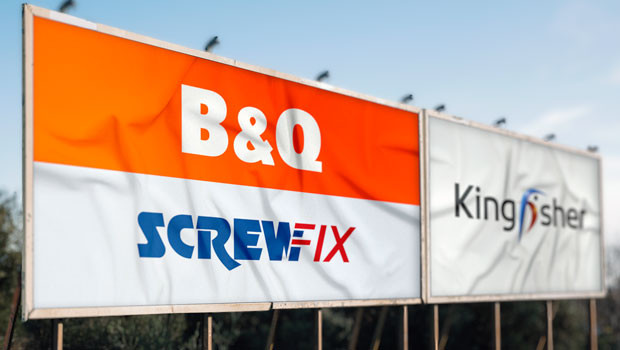Kingfisher issues second profit warning in two months

Home improvement retail conglomerate Kingfisher has cut its profit guidance for the second time owing to continued market weakness in France.
FTSE 100
8,060.61
15:45 15/11/24
FTSE 350
4,453.56
15:45 15/11/24
FTSE All-Share
4,411.85
15:45 15/11/24
General Retailers
4,597.92
15:44 15/11/24
Kingfisher
290.90p
15:45 15/11/24
The company, which owns B&Q and Screwfix in the UK along with a host of other DIY brands across Europe, said adjusted pre-tax profit for the year ending January 2024 will now come in at around £560m, compared with £758m the year before.
This marks the second profit warning in quick succession for Kingfisher, after the company slashed its guidance from £634m to £590m in September.
The retailer is also now guiding to full-year free cash flow of £470m, below previous targets of over £500m.
Group sales in the third quarter ended 31 October totalled £3.2bn, down 2.1% on last year, with like-for-like sales dropping 3.9%.
Underlying retail and trade consumer trends were said to be "resilient" in the UK with LFL sales up 1.1%, and improving in Poland with the LFL decline slowing to 9% from 11% in the first half.
But market trends in France were weaker than expected with LFL sales dropping by 8.6% due to an underperformance by the Brico Dépôt chain due to unusually warm autumn weather which has affected insulation, plumbing and heating sales, and strong prior-year comparatives in these categories.
These trends have continued into the fourth quarter, Kingfisher said.
"As a result of the subdued environment in France this year, we have been proactively managing our operating costs to align as far as possible to trading conditions. The business has strengthened actions on flexing staffing levels, lowered discretionary spend and has accelerated several structural cost reduction initiatives in H2. These actions will also support improved profitability in France over the medium-term.
"However, at the assumed level of market weakness in Q4, the cost efficiencies described above and being achieved by the business are not sufficient to offset the bottom-line impact between now and the end of the financial year."